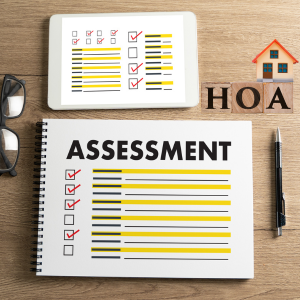
Certainly! Here Is a Reordered List of Unique Headings for a Comprehensive Article
Opting out of a homeowners association (HOA) in Illinois can be challenging, but understanding the legal and procedural steps is crucial for homeowners seeking housing freedom. Begin by thoroughly reviewing your HOA’s governing documents, such as the Declaration of Covenants, Conditions, and Restrictions (CC&Rs), to identify any provisions regarding withdrawal or dissolution.
Consulting with a real estate attorney specializing in Illinois property law can help navigate complex legal requirements and ensure compliance with state statutes. It is also important to gather support from fellow homeowners with similar intentions, as collective action might be necessary to amend or dissolve the association effectively.
Open communication with your HOA board can facilitate discussions about potential exit strategies or alternative arrangements that align with community interests. Additionally, researching relevant Illinois laws that govern HOAs will equip you with valuable knowledge about your rights and obligations throughout this process.
Understanding Homeowners Associations: Rules and Regulations
Homeowners Associations (HOAs) in Illinois are established to manage and maintain a community’s common areas and shared amenities, ensuring a cohesive neighborhood aesthetic and lifestyle. These organizations operate under governing documents, including covenants, conditions, and restrictions (CC&Rs), bylaws, and rules and regulations that homeowners must adhere to.
The rules can dictate various aspects of property ownership, such as architectural standards, landscaping requirements, parking restrictions, and even paint colors. Understanding these regulations is crucial for homeowners considering opting out of an HOA.
While HOAs aim to enhance property values by preserving uniformity and order within the community, some residents may find the restrictions burdensome or intrusive. In Illinois, navigating the process to opt out requires comprehending the association’s specific guidelines and state laws governing HOAs. HOAs typically set clear rules for property owners to prevent vacant homes from becoming a nuisance or lowering the community’s appeal.
This knowledge empowers homeowners to make informed decisions about their rights and responsibilities when seeking housing freedom outside the confines of an HOA’s governance.
Typical Covenants and Restrictions in HOA Agreements
Homeowners associations (HOAs) in Illinois often impose various covenants and restrictions to maintain property values and community standards. These agreements typically include rules about architectural modifications, landscaping requirements, and the use of common areas.
Homeowners may face limitations on exterior paint colors, the types of fencing allowed, and even the placement of satellite dishes or solar panels. Parking regulations are another common restriction, dictating where residents can park vehicles or store recreational equipment like boats or RVs.
Noise levels and pet policies might also be strictly governed to ensure tranquility within the neighborhood. Additionally, HOAs often enforce guidelines about leasing properties to ensure that homes remain owner-occupied rather than rented out frequently.
Understanding these covenants is crucial for homeowners considering opting out of an HOA in Illinois, as navigating these restrictions can significantly impact their housing freedom and property rights.
The Role of the Board in Homeowners Associations
In Illinois, the board’s role in a homeowners association (HOA) is crucial to understanding your options for opting out and achieving housing freedom. The HOA board is responsible for enforcing the community’s covenants, conditions, and restrictions (CC&Rs), which define the obligations and privileges of property owners within the association.
This governing body consists of elected members who oversee financial management, maintenance of common areas, and adherence to rules designed to uphold property values. It is essential to comprehend how the board operates to opt out effectively, as decisions are made based on bylaws that can vary widely between associations.
Engaging with board meetings and reviewing meeting minutes can provide insight into their decision-making processes and potential avenues for negotiating changes. Understanding these dynamics empowers homeowners seeking greater autonomy or those wishing to challenge restrictive policies that impede personal preferences or property usage rights within their HOA community in Illinois.
Navigating Hoa Fees: What You Need to Know
Understanding HOA fees is crucial when considering opting out of a homeowners association (HOA) in Illinois. These fees are mandatory payments collected to maintain common areas and services within the community.
To navigate these fees effectively, review your HOA’s governing documents, such as the Covenants, Conditions, and Restrictions (CC&Rs), which detail fee structures and obligations. It’s essential to know that even if you wish to opt out of an HOA, existing financial commitments may still require fulfillment until formal separation is achieved.
Contacting the HOA board or management company can clarify any questions regarding outstanding dues or potential penalties for non-compliance. Additionally, be aware that attempting to leave an HOA could involve legal complexities; consulting with a real estate attorney familiar with Illinois law can help manage financial responsibilities during this process.
Understanding these aspects of HOA fees will help you make informed decisions about pursuing housing freedom in Illinois. If you’re considering selling a property tied to an HOA and need help navigating the legal and financial complexities, A Team Real Estate Solutions in Illinois can help guide you through the process and connect you with the right resources to make a smooth transition.
Understanding Special Assessments in HOAs

Understanding special assessments in homeowners associations (HOAs) is crucial for anyone opting out of an HOA in Illinois. Special assessments are additional charges that an HOA imposes on homeowners, often to cover unexpected expenses or significant capital improvements not included in the regular budget.
These can encompass anything from roof repairs and major landscaping projects to emergency infrastructure updates. In Illinois, HOAs have the authority to levy these assessments based on the community’s governing documents, which outline the circumstances under which such fees can be charged.
Homeowners need to review their association’s bylaws carefully, as they provide critical insight into how special assessments are determined and approved. Understanding this process is essential because opting out of an HOA doesn’t necessarily exempt a homeowner from obligations incurred during membership, including outstanding special assessments.
Being informed about how these charges work helps homeowners make educated decisions when considering leaving their HOA while navigating their rights and responsibilities within Illinois housing regulations.
Pros and Cons of Living in an HOA Community
Living in an Illinois homeowners association (HOA) community has advantages and disadvantages that residents should consider. On the positive side, HOAs often provide well-maintained common areas, ensuring that neighborhoods remain clean and aesthetically pleasing.
This can increase property values, as potential buyers are attracted to the orderly appearance and amenities such as pools, clubhouses, or parks. Additionally, HOA communities typically enforce rules that promote harmony among residents by minimizing disputes over noise or property upkeep.
However, these benefits come at a cost. Homeowners must pay fees to cover the maintenance of shared spaces and services, which can financially burden some.
The strict regulations enforced by HOAs can also limit personal freedoms; for instance, homeowners might face restrictions on exterior home modifications or the types of vehicles they can park in their driveways. Moreover, conflicts with HOA boards over rule enforcement or fee increases can create tension and dissatisfaction among residents.
Balancing these pros and cons is crucial when deciding whether living in an HOA community aligns with one’s lifestyle preferences and financial situation.
Tips for Buying Property Within an HOA Community
When considering buying property within an HOA community in Illinois, it’s crucial to thoroughly review the association’s governing documents, including the bylaws and covenants, conditions, and restrictions (CC&Rs). Understanding these rules will help determine if the HOA’s guidelines align with your lifestyle preferences.
Pay close attention to monthly dues and special assessments, as these fees can impact your budget. Before purchasing, it’s wise to attend an HOA meeting to gauge how the board operates and interacts with residents.
Investigating the HOA’s financial health is also important; request a copy of its financial statements to ensure adequate reserves for maintenance and unforeseen expenses. Additionally, speaking with current homeowners about their experiences can provide valuable insights into community dynamics and potential challenges.
Taking these steps can help you make a more informed decision when buying property within an HOA-controlled environment in Illinois. If you have questions or need guidance navigating the process, don’t hesitate to contact us for expert support tailored to your situation.
Evaluating the Benefits of Voluntary Versus Mandatory HOAs
When evaluating the benefits of voluntary versus mandatory homeowners associations (HOAs) in Illinois, it’s essential to consider how these different structures impact property owners’ rights and responsibilities. Voluntary HOAs offer flexibility, allowing homeowners to choose whether they want to participate and contribute financially.
This can particularly appeal to those who value housing freedom and wish to avoid obligatory fees or restrictions. On the other hand, mandatory HOAs typically impose specific regulations and dues that all residents must comply with, which can ensure uniformity and maintain property values within a community.
However, these mandatory associations may also limit individual autonomy by enforcing strict rules regarding property modifications or usage. By understanding the differences between voluntary and compulsory HOAs, Illinois homeowners can make informed decisions about opting out of an HOA and pursuing a living arrangement that aligns with their personal preferences for community involvement and property management.
The Impact of Hoas on Property Values: an Analysis

Homeowners’ Associations (HOAs) can significantly impact property values, often in complex ways. In Illinois, HOAs are known for maintaining community standards by enforcing rules and regulations that enhance the neighborhood’s aesthetic appeal and overall desirability.
This can lead to increased property values, as prospective buyers are often attracted to well-maintained communities with consistent architectural styles and amenities such as swimming pools, parks, and clubhouses. However, the influence of an HOA on property values is not always positive.
Some homeowners find the additional fees burdensome or disagree with the restrictive covenants imposed by their HOA, which can deter potential buyers who prefer more autonomy over their properties. Moreover, conflicts between homeowners and HOA boards can sometimes become public, negatively affecting a community’s reputation and property values.
Understanding these dynamics is crucial for Illinois residents considering opting out of an HOA, as they weigh the potential benefits of housing freedom against any possible decline in their property’s market value without the perceived stability offered by an active association.
Top Reasons Homeowners Decide to Leave Their HOAs
Homeowners in Illinois often seek to opt out of their homeowners associations (HOAs) for several compelling reasons. One of the primary motivators is the desire for housing freedom, as many residents find HOA rules and regulations overly restrictive.
These covenants can dictate everything from exterior paint colors to landscaping choices, limiting personal expression and property customization. Additionally, the financial burden of HOA fees can be significant, with dues sometimes increasing unexpectedly to cover community projects or maintenance costs.
Homeowners might also experience dissatisfaction with how their fees are managed or feel that the services provided do not justify the expense. Furthermore, conflicts with HOA boards over enforcement actions or disagreements about community priorities can lead to frustration and disenfranchisement among residents.
The need for more control over one’s property decisions without external oversight drives many individuals to explore avenues for leaving their HOAs in pursuit of greater autonomy and peace of mind regarding their homeownership experience.
Legal Considerations When Exiting an HOA Agreement
When considering how to opt out of a homeowners association (HOA) in Illinois, it’s crucial to understand the legal considerations involved in exiting an HOA agreement. Illinois law requires homeowners to carefully review their HOA covenants, conditions, and restrictions (CC&Rs), as these documents outline the specific procedures and obligations for withdrawing from the association.
Determining whether your property’s declaration includes a provision for opting out is essential, as not all agreements allow for this. In some cases, unanimous consent from other homeowners may be required, or a formal vote by the association might be necessary.
Legal advice is often recommended to navigate the complexities of contract law and ensure compliance with Illinois statutes governing HOAs. Additionally, one must consider any potential financial implications, such as outstanding dues, penalties, or legal fees that could arise while leaving an HOA.
Understanding these legal nuances can help homeowners make informed decisions about gaining housing freedom while avoiding litigation or disputes with their association.
Consequences of Leaving An HOA
If a homeowner in Illinois opts to leave an HOA, they should consider the significant financial consequences that might arise. When leaving an HOA, a common misconception is that the homeowner stops paying the dues and special assessments, which usually cover the maintenance of community shared facilities.
This action may lead to additional expenses, such as legal costs, arising from disagreement in the meeting processes. In the case where an HOA is not available, the individual homeowner may shoulder the burdens of property maintenance expenses that were previously covered by communal fees.
The absence of shared resources could also slow the rate at which properties are sold and reduce market competitiveness, which may impact the overall property value. Furthermore, if the homeowner stops using the HOA services, they may need to contract out the HOA-controlled utilities and landscaping to an association, adding another HOA payment.
A homeowner in Illinois must understand the reasons behind the decision and be aware of the financial consequences of leaving an HOA if they wish to make sound financial decisions related to their housing freedom and expenditures.
For Illinois homeowners contemplating disengaging from an HOA and selling their property, considering how the lack of shared amenities will affect the home’s market resale value is critical. While some buyers feel the absence of HOA regulations and fees is welcoming, others would see the lack of community upkeep as detrimental. For those who intend to sell their houses, dealing with investor home buyers in Springfield and nearby areas is easier. These buyers typically buy houses in whatever state they are in, and many understand non-HOA communities, which makes the sale easier and faster since there are no extensive processes or delays to work through.
How to Completely Opt Out of an Hoa in Illinois: a Step by Step Process
Exiting a homeowner’s association (HOA) in Illinois involves a legal process and procedural steps that must be followed to attain housing liberty. The first step is to scan your community’s governing documents, like the Declaration of Covenants, Conditions, and Restrictions (CC&R) for HOA agreements, to check for loopholes from which one can break free.
Talking to a lawyer specializing in real estate in Illinois will help you understand your situation, especially in light of any applicable state laws regarding your withdrawal from an HOA. If the documents allow for withdrawal under particular requirements, you may have to seek support from other homeowners who want to free themselves from the HOA’s control.
This action could employ a simple vote to amend the section components of the association’s governing documents. Alternatively, if community guidelines are silent on the issue, consider withdrawing from the community rules and negotiating directly with the board for cross-withdrawal.
To avoid infringing on your rights as a resident and property owner in Illinois, ensure all negotiation channels are open when reducing HOA control.
Tips and Tactics: Resolving Conflicts with Your HOA
As with any homeowners association (HOA) in Illinois, certain disputes will need to be navigated if you wish to achieve complete satisfaction and housing freedom. Consider starting with a thorough review of the governing documents of the HOA, and pay special attention to the CC&Rs (Covenants, Conditions, and Restrictions) to grasp both sides of the responsibility.
Remember to communicate; set aside time to discuss issues with the board, as a simple misunderstanding can sometimes blow up into something far worse. Furthermore, regularly attending HOA meetings will keep you informed and allow members to voice opinions effectively.
When all negotiation rounds hit a dead end, consider using mediation, as it tends to calm down heated disputes or disagreements without escalating them further. Also, consult an attorney who understands your Illinois HOA law to help navigate the options available for resolving the dispute or exiting it altogether, if it is permissible by law.
Knowing state-specific laws makes a positive difference when dealing with disputes respectfully and with HOAs.
Transportation Options Under the Scope of An HOA

Alternatives to homeowner associations (HOAs) found within the suburbs of Illinois provide individuals looking to enjoy freedom unparalleled by those residing under an HOA subdivision. These individuals can purchase homes and broaden their autonomy, as they will not face mandatory fees, restrictive covenants, and a divided society. Offering customization and privacy, rural properties can also be appealing for their expansive lands and fewer regulations. Like-minded individuals who share living spaces while managing communal areas cooperatively and independently from typical HOA frameworks can also live in co-housing communities.
Fostering close-knit communities, tiny home villages are innovative alternatives that tend to avoid burdensome rules typical of HOAs. With such options, Illinois residents are offered the freedom to discover or create ideal accommodations that align with their values and lifestyle goals. This transforms residents’ perspectives on conventional HOA constraints.
Properties outside an HOA in Illinois are often highly sought after because of the appeal of flexibility and reduced restrictions they come with, and those looking to sell a home are in luck. Highlighting a lack of HOA ties can benefit tiny home villages or rural stand-alone properties. This is ideal for cash home buyers in Chicago and neighboring cities, who can expedite the process and eliminate hurdles typical of traditional sales, paving the way for buyers to accomplish their goals on their terms.
Common Queries Concerning HOAs and Their Administration
Above all the other associations, Illinois homeowners have specific queries regarding the governance and rules of the homeowners association (HOA), particularly considering the ‘opt-out’ clause. Understanding the role and jurisdiction of an HOA is essential when considering the options available for escaping the ‘housing trap.’
Like in other places, Illinois HOAs operate with particular bylaws and covenants that all members must adhere to. These documents, however, also specify the processes for opting out or abolishing an HOA. Recurring legal scrutiny exists, such as withdrawing from an HOA, understanding quorum requirements, the voting process, and even the financial costs involved.
Appropriate collaborative strategies for achieving the identified goal are necessary to obtain the best results attainable on a particular issue. With the benefits that come with technology, incorporated with further research, finding ways in which state legislation intersects with association governing documents ought to give one an idea of what one is looking for. Explored questions often include the effects of opting out of the association, such as loss of services pertaining to maintenance, property management, or those offered at the community level.
Advising one seeking these answers legally evokes the decisions one takes for a more informed stance that disassociates them from decision-making issues concerning the association and focuses on the housing autonomy side.
Is Joining an HOA Optional?
Absolutely! Here’s a keyword-rich paragraph for the specific heading: Many homeowners question whether opting out of a homeowners association (HOA) is possible in Illinois. An HOA’s opt-out possibility primarily hinges on whether your property is already under a mandatory HOA’s jurisdiction upon purchase.
In most situations, an automatic and legally binding membership comes with purchasing a home in a development with an existing HOA. Nonetheless, it is critical to comprehend the covenants, conditions, and restrictions (CC&R) before deciding.
If you’re after unrestricted housing options and wish to avoid joining an HOA, be ready to conduct thorough research. Search for homes in subdivisions with no compulsory HOAs or where residents have voted to abolish the HOA.
Seeking the counsel of a real estate attorney who practices Illinois property law may give you more options on how to deal with the prospect of opting out of an HOA, if that’s an option.
Can You Opt Out of Being in an HOA?
Opting out of a homeowners association (HOA) in Illinois is a complex process, as these associations are typically established through legally binding covenants tied to the property deed. Homeowners automatically agree to abide by the association’s rules and regulations when purchasing a home within an HOA community.
Therefore, simply opting out of an HOA is not generally possible without selling the property or working with the community to dissolve the HOA entirely. However, homeowners seeking more freedom from HOA restrictions in Illinois can explore several strategies.
These include actively participating in board meetings to influence change from within, negotiating specific waivers for certain rules, or rallying other homeowners with similar concerns to pursue legal amendments to the association’s governing documents. Understanding the intricacies of Illinois real estate law and consulting with a legal professional specializing in HOAs can also help navigate these challenges effectively.
What Power Does HOA Have in Illinois?
In Illinois, homeowners’ associations (HOAs) have considerable power in community governance and property management, which may affect homeowners wanting to withdraw from an HOA. HOAs also have the power to enforce covenants, conditions, and restrictions (CC&Rs), which govern property use and upkeep.
These associations may assess dues for communal services and amenities provided, such as landscaping and security. They also have the power to fine rule violators and sue non-compliant homeowners.
They oversee individual communal system houses’ alteration or improvement and architectural control. Any homeowner trying to withdraw from an HOA in Illinois must understand these powers because it shows the degree of control these associations have concerning residents’ living standards and highlights the difficulties of attempting to escape the control of such governance systems.
Can You Refuse to Pay HOA Fees?
While considering the refusal to pay HOA fees in Illinois, it is essential to consider the legal framework surrounding homeowners associations (HOAs). When you buy a house or a unit within an HOA-managed community, you usually consent to follow the covenants, conditions, and restrictions (CC&Rs) that the association imposes.
These CC&Rs usually require payment of HOA fees, which cover maintenance and other community services. Failure to comply with these payments can have serious consequences. These may include fines, penalties, or legal actions such as liens against your property or foreclosure proceedings.
In an attempt to withdraw from an HOA or negotiate lower fees with an Illinois-based attorney, it would be helpful to first check the HOA’s governing documents for loopholes. The balance between discretion and obligations results in the fulfillment of rights and duties, aids in compliance with agreements, and enhances freedom relating to the use of the property.
Do you need to sell your home? Sell quickly, avoid costly repairs, or prefer a hassle-free sale. A Team Real Estate Solutions is here to help. We offer fair cash offers, handle all the details, and make the process seamless. Ready to sell or have questions? Call us at (708) 608-0420 for a no-obligation offer. Get started today!
| HOMEOWNER ASSOCIATION | HOMEOWNER ASSOCIATION (HOA) | ILLINOISA | STATE OF ILLINOIS | ATTORNEYS | LAWYERS |
| BUDGETING | INSURANCE COMPANY | INSURANCE AGENCY | EVICTION | INFORMATION | CORPORATION |
| AMERICAN | AMERICA | MORTGAGE | DEBT | COMPLAINT | FAIR HOUSING |
| FAIR HOUSING ACT | DISCRIMINATION | BOARD OF DIRECTORS | EXPENDITURES | DISABILITIES | DISABILITY |
| COURT | SNOW REMOVAL | SNOW | MATTER | LEGISLATION | INVESTMENT |
| HUMAN RIGHTS ACT | FINANCE | EDUCATION | AMERICANS WITH DISABILITIES ACT | AMERICANS WITH DISABILITIES ACT (ADA) | CAN I OPT OUT |
| I OPT OUT OF | COVENANTS CONDITIONS AND RESTRICTIONS | HOA ITS IMPORTANT TO |
